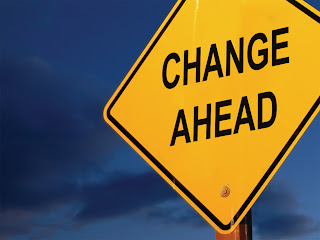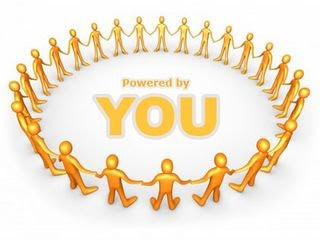I don't write a lot about technology in education, but it is a prominent aspect of my professional development. I learned some years ago that the best way to learn in the context of professional development is to do the background work required to provide professional development for others. I did just that at the recent Alberta Technology Leaders in Education Conference (ATLE) 2010 in November. It's hard to believe I hadn't heard about this conference, and right in my backyard. Anyway, when I did hear about it via Twitter, I jumped at the opportunity to propose a session-
Insights on Initiating a Technology Integration Game Plan from the Ground-Up.
My session was very-well attended and I was pleased with the dialog that it generated. I formatted my presentation in the form of a workspace; a style I'm using more and more often. I appreciate the collaborative element work spaces provide, and I think of this sort of presentation as an "open source" offering... when I'm done with my rant, those who attended can do whatever they want with it. The link is theirs to use however they want. They can even do the presentation themselves if that's what works for them. I'm learning that to be truly collaborative, (and my experience at ATLE 2010 confirmed this for me once again,) I have to let go of what I believe is a natural tendency of teachers to protect "their" stuff. If what I have to say helps a colleague advance their practice, I encourage them to leverage my message in their own way for their own purpose.
Unfortunately, I wasn't able to attend much of the rest of the conference as a result of other responsibilities and commitments, so my learning was limited to what I discovered while preparing my presentation. My school is on a technology integration learning curve funded through the Alberta Initiative for School Improvement (AISI). Near half-way through our technology integration action research project, we've learned a great deal as a staff, and I've learned a tremendous amount personally as a leader within the project, mostly by making mistakes.
One of my larger epiphanies has surrounded the term 21st Century Learning. I'm not fond of this term. I have thought about this a great deal, and I've come to the conclusion that contemporary kids don't need to be told they are learning in the 21st Century... they just are. To me learning in the 21st Century, when boiled down to a core element is really just about change; not change as in a desired change of state from what is not good to what is, but rather change as a constant. This is how I've learned to frame change in contemporary teaching and learning. The world is shrinking and growing at the same time. This bit of irony continues to fascinate me. Technology creates accessibility among people around the globe, connecting them in affordable and efficient ways never before possible; our world is shrinking. At the same time, these networks and connections allow us exposure to new cultures, ideas and knowledge previously inaccessible; our world is expanding. This is an awesome shift.
As I stood and spoke with my audience during ATLE 2010, it struck me that much of the professional development we do in education fits the "change as moving to a desired outcome or state" paradigm. My session was contextualized as a primer for building a technology integration plan from scratch, and when I asked participants where they were at on the tech integration spectrum, most indicated they arrived at a place where technology integration was evident. There was one lady though who asked me before I started who the target audience was. I explained that my initial plan for the session was to provide some insights for colleagues who were just getting started, but as I worked to prepare the session in the weeks leading up to ATLE 2010, I realized that the process of change, (in this case, change in the way we approach and utilize technology in schools,) is perpetual. Authentic change doesn't end because once we get to the state we desire, it's time to change again; that's just the nature of change within contemporary teaching and learning.
I told the lady that my session was for anyone who had an open-mind and a willingness to think deeply about the role of technology in schools, and more importantly, how teachers should be continuously upgrading and refining their technology skills and perspectives. She stayed, and participated in the back channel too. She engaged, and that made me happy.
So in retrospect maybe I should have called my session "Approaching Technological Change in Contemporary Teaching and Learning" instead, because that's what it ended up being. Imagine that, my approach changed to fit the context of my learning and what I wanted to share with my colleagues... maybe I am becoming a contemporary teacher and learner.











